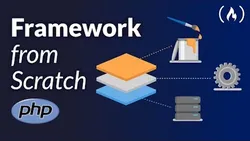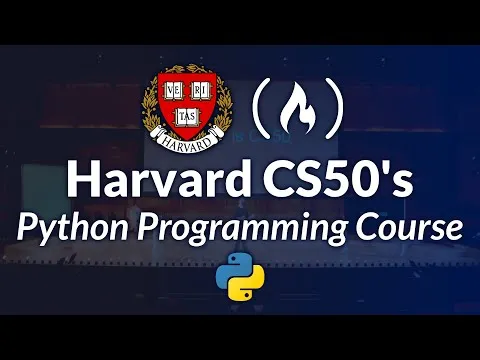
Use PHP to Create an MVC Framework - Full Course 
This course provides an in-depth look at how to use PHP to create an MVC framework from the ground up. Students will gain a comprehensive understanding of the fundamentals of MVC and how to apply them to their own projects. ▼
ADVERTISEMENT
Course Feature
![]() Cost:
Cost:
Free
![]() Provider:
Provider:
freeCodeCamp
![]() Certificate:
Certificate:
Paid Certification
![]() Language:
Language:
English
![]() Start Date:
Start Date:
On-Demand
Course Overview
❗The content presented here is sourced directly from freeCodeCamp platform. For comprehensive course details, including enrollment information, simply click on the 'Go to class' link on our website.
Updated in [March 06th, 2023]
This course provides an overview of how to use PHP to create an MVC framework from scratch. Students will learn the fundamentals of the Model-View-Controller (MVC) architecture and how to use it to create a framework. Topics covered include setting up the environment, creating the database, creating the models, creating the views, creating the controllers, and creating the routes. Additionally, students will learn how to use the framework to create a basic web application. By the end of the course, students will have a working knowledge of how to use PHP to create an MVC framework.
[Applications]
After completing this course, students will have the knowledge and skills to create their own MVC framework using PHP. They will be able to create a basic structure for their framework, as well as understand the principles of Model-View-Controller (MVC) architecture. Additionally, they will be able to create a database connection, create models, and create controllers and views. With this knowledge, students can apply their skills to create their own web applications and websites.
[Career Paths]
1. Web Developer: Web developers use programming languages such as HTML, CSS, JavaScript, and PHP to create websites and web applications. They are responsible for the design, development, and maintenance of websites. With the increasing demand for web applications, web developers are in high demand and the job outlook is expected to grow by 8% from 2019 to 2029.
2. Software Engineer: Software engineers use programming languages such as Java, C++, and PHP to develop software applications. They are responsible for the design, development, and maintenance of software applications. With the increasing demand for software applications, software engineers are in high demand and the job outlook is expected to grow by 21% from 2019 to 2029.
3. Database Administrator: Database administrators use programming languages such as SQL and PHP to manage databases. They are responsible for the design, development, and maintenance of databases. With the increasing demand for data-driven applications, database administrators are in high demand and the job outlook is expected to grow by 9% from 2019 to 2029.
4. Web Application Developer: Web application developers use programming languages such as PHP, JavaScript, and HTML to create web applications. They are responsible for the design, development, and maintenance of web applications. With the increasing demand for web applications, web application developers are in high demand and the job outlook is expected to grow by 31% from 2019 to 2029.
[Education Paths]
1. Bachelor of Science in Computer Science: This degree path provides students with a comprehensive understanding of computer science fundamentals, including programming languages, software engineering, computer architecture, and operating systems. Students will also learn about the latest trends in computer science, such as artificial intelligence, machine learning, and data science.
2. Bachelor of Science in Software Engineering: This degree path focuses on the development of software applications and systems. Students will learn about software design, development, testing, and maintenance. They will also gain an understanding of the latest technologies and trends in software engineering, such as cloud computing, mobile development, and web development.
3. Master of Science in Computer Science: This degree path provides students with an advanced understanding of computer science fundamentals, including algorithms, data structures, and programming languages. Students will also learn about the latest trends in computer science, such as artificial intelligence, machine learning, and data science.
4. Master of Science in Software Engineering: This degree path focuses on the development of software applications and systems. Students will learn about software design, development, testing, and maintenance. They will also gain an understanding of the latest technologies and trends in software engineering, such as cloud computing, mobile development, and web development.
Course Provider

Provider freeCodeCamp's Stats at AZClass
Discussion and Reviews
0.0 (Based on 0 reviews)
Explore Similar Online Courses

Sign Language Science: Factors Contributing to Natural Learning

Agile Leadership

RDBMS PostgreSQL

Intro To PostgreSQL Databases With PgAdmin For Beginners

PostgreSQL: Client Applications

Mastering SQL using Postgresql

Database Design and Basic SQL in PostgreSQL

PostgreSQL: Advanced Queries

Spatial SQL with Postgres : A language for geographers

Learn SQL Using PostgreSQL: From Zero to Hero

PostgreSQL Essential Training


Start your review of Use PHP to Create an MVC Framework - Full Course